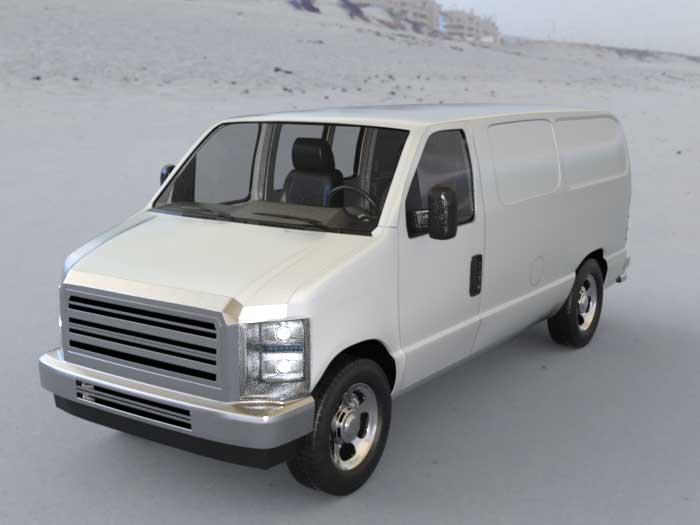Van buyers, from independent tradespeople to large fleets, are increasingly considering electric vans. Would one be right for you?
The Benefits of Electric Vans
Lower Running Costs: One of the most significant advantages of electric vans is their lower running costs. Electricity is cheaper than petrol or diesel, and with the average cost of electricity in the UK being around 14p per kWh, you can expect to pay substantially less to 'refuel' an electric van. Furthermore, EVs have fewer moving parts than conventional vehicles, which can reduce maintenance costs.
Zero Emissions: Electric vans produce zero tailpipe emissions, making them a more environmentally friendly choice. They help improve air quality, particularly in urban areas where air pollution is a concern. For businesses, using electric vans can enhance your brand's green credentials and appeal to environmentally conscious customers.
Government Grants and Incentives: The UK government is keen to encourage the use of electric vehicles and offers a range of incentives. The Plug-In Van Grant, for example, can reduce the purchase price of a new electric van by up to £6,000. Electric vans are also exempt from the London Congestion Charge and some other low emission zone fees, providing further savings.
Quiet Operation: Electric vans are quieter than their diesel counterparts, which can be a significant advantage for urban deliveries that need to be made early in the morning or late at night.
The Cons of Electric Vans
Higher Purchase Prices: Despite the available government grants, electric vans generally have higher upfront costs than comparable diesel or petrol models. However, it's important to consider the total cost of ownership, including fuel, tax, and maintenance costs, which can make electric vans more cost-effective over time.
Limited Range: Whilst the range of electric vans is continually improving, it's still generally less than that of a diesel van. An electric van might not be suitable if you need to cover long distances without the opportunity to recharge. However, for many urban delivery routes or short commutes, the range can be more than sufficient.
Charging Infrastructure: Although the UK's charging infrastructure is improving, it still lags behind that of petrol and diesel. Depending on your location, finding a convenient charging point can be difficult. Home charging is an option if you have access to off-street parking, but this might not be practical for everyone.
Limited Model Choice: Given that the choice of electric vans is growing, it's still somewhat limited compared to traditional vans. However, more models are being introduced all the time, and most major manufacturers now have at least one electric van in their line-up.

Electric Vans: The Future is Now
Electric vans are not just the future; they're very much the present. As of 2023, there are numerous electric van models available in the UK, each with it's own unique selling points. The Nissan e-NV200, for instance, is known for it's compact size and impressive load capacity, whilst the Renault Master Z.E. is a larger option that doesn’t compromise on cargo space. The Mercedes-Benz eSprinter, another prominent player in this space, offers a blend of performance, comfort, and utility.
Moreover, the UK is making significant strides in expanding it's charging network. The government's commitment to phasing out internal combustion engines has led to substantial investments in EV infrastructure. There are now over 35,000 charging points across the UK, and this number continues to grow. Home charging solutions are also becoming more sophisticated and affordable, making it easier than ever to keep an electric van charged and ready to go.
As the technology evolves and battery efficiency improves, we can expect the range of electric vans to increase, making them a viable option for an even broader range of applications. Several van manufacturers have already announced plans to launch new electric models in the coming years, which will give buyers even more choices.
Making the Switch to Electric Vans
Transitioning to an electric van requires some adaptation, but many drivers find that the benefits far outweigh the challenges. The smooth, quiet ride and responsive acceleration provided by electric power can make for a more enjoyable driving experience. Plus, there’s the satisfaction of knowing that you’re contributing to cleaner air and a more sustainable future.
However, it's essential to make a considered decision. You need to think about how often and how far you drive, where you could recharge the van, and whether it can meet your payload requirements. It may be worth hiring or leasing an electric van first to see if it suits your needs before making a purchase.
Finally, although the upfront cost of an electric van may be higher, remember that the lower running costs can make it more cost-effective in the long run. When you factor in the fuel savings, reduced maintenance costs, and government incentives, the total cost of ownership can be competitive with a diesel or petrol van.
Conclusion
The decision to invest in an electric van involves a careful evaluation of the benefits and drawbacks. Whilst there are obstacles to overcome, the benefits can be significant. The key is to understand your specific needs and to choose a van that meets them.
As the technology continues to evolve, the case for electric vans is likely to get stronger. If you're considering an electric van, you're not just looking at a vehicle; you're looking at a vision of a more sustainable future.
Whether or not that path is right for you at this moment depends on your unique circumstances, but there’s no denying that the journey towards a greener, more sustainable future in transportation is well underway, with electric vans at the forefront.

